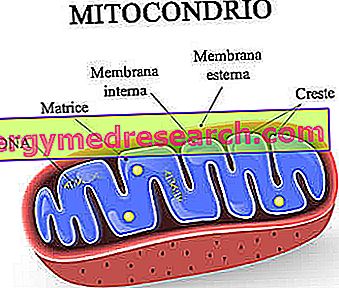
What is Zometa?
Zometa is a drug containing the active substance zoledronic acid, available in powder and solvent and in concentrate, to be diluted to obtain a solution for infusion (drip into a vein).
What is Zometa used for?
Zometa is indicated to prevent bone complications in patients with advanced stage cancer affecting the bone. They include fractures, vertebral crushing, bone disorders for which radiotherapy is needed or surgery, and hypercalcaemia (increased level of calcium in the blood).
Zometa can also be used to treat neoplastic hypercalcaemia (ie caused by a tumor).
The medicine can only be obtained with a prescription.
How is Zometa used?
Zometa should only be used by doctors experienced in the intravenous administration of this type of medicine.
The usual dose of Zometa is 4 mg, given by infusion for at least 15 minutes. If the drug is used to prevent bone complications, the infusion can be repeated every three or four weeks; patients will also need to take calcium and vitamin D supplements. It is recommended to reduce the dose in subjects suffering from bone metastases (spread of bone cancer) that report mild to moderate kidney problems. The use of Zometa is not recommended in patients with severe renal impairment.
How does Zometa work?
Zoledronic acid, the active ingredient in Zometa, is a bisphosphonate. It inhibits the action of osteoclasts, the cells of the body involved in the resorption of bone tissue, with a consequent reduction in bone resorption. The decrease in bone mass loss makes bone breakdown less likely, with consequent advantages in terms of preventing fractures in patients with bone metastases. People with cancer can have high blood levels of calcium, which is released into the blood from the bones. By preventing bone breakage, zoledronic acid promotes the reduction of calcium concentration in the blood.
What studies have been carried out on Zometa?
Zometa has been studied in over 3, 000 patients with bone metastases to verify their effectiveness in preventing damage to the bone. The medicine was compared with placebo (a dummy treatment) in two studies, while in a third study it was compared with pamidronate (another bisphosphonate). The main measure of effectiveness was the percentage of patients who had at least one new "skeletal event" observed over 13 months, including any bone complication that needed to be treated by radiotherapy or surgery, any type of fracture or an onset of vertebral crushing.
The efficacy of Zometa in patients with neoplastic hypercalcemia was examined in two main studies involving a total of 287 patients, in which the medicine was compared with pamidronate. The main measure of effectiveness was the percentage of patients whose calcium levels returned to normal within 10 days after treatment.
What benefit has Zometa shown during the studies?
In patients with bone metastases, the percentage of subjects who developed a new skeletal event was lower with Zometa (33% to 38%) than with placebo (44%). Zometa was also as effective as pamidronate: the percentage of patients in whom a skeletal event was observed was 44% with Zometa and 46% with pamidronate.
In patients with hypercalcaemia, Zometa was more effective than pamidronate. Examining the results of the two studies together, the percentage of patients with normal calcium levels within 10 days after treatment was 88% with Zometa and 70% with pamidronate, respectively.
What is the risk associated with Zometa?
The most common side effect of Zometa (seen in more than 1 patient in 10) is hypophosphataemia (decreased phosphate levels in the blood). For the full list of all side effects reported with Zometa, see the Package Leaflet.
Zometa should not be used in people who may be hypersensitive (allergic) to zoledronic acid, other bisphosphonates or any of the other components. The medicine should not be used during pregnancy or breast-feeding. As with all bisphosphonates, patients taking Zometa may be at risk of osteonecrosis (death of bone tissue) of the jaw.
Why has Zometa been approved?
The Committee for Medicinal Products for Human Use (CHMP) has decided that Zometa's benefits are greater than its risks for the prevention of skeletal-related events (pathological fractures, vertebral crushing, radiotherapy or bone surgery, neoplastic hypercalcemia) in patients with advanced malignant tumors affecting bone and in the treatment of neoplastic hypercalcaemia. The Committee recommended that Zometa be given marketing authorization.
More information on Zometa:
On 20 March 2001, the European Commission issued a marketing authorization valid for Zometa to Novartis Europharm Limited, valid throughout the European Union. The marketing authorization was renewed on 20 March 2006.
The full EPAR for Zometa can be found here.
Last update of this summary: 04-2008



